Cocktails
Ready-to-Drink Wine
Ready-to-Drink Beer
Spirits
Cans
Bottles
Pouches
Fruity
Spicy
Herbal
Sweet
Low Alcohol
Regular Alcohol
High Alcohol
North America
Europe
South America
Asia Pacific
Middle East and Africa
North America Outlook (USD Billion, 2019-2035)
North America RTD Alcoholic Beverages Market by Product Type
Cocktails
Ready-to-Drink Wine
Ready-to-Drink Beer
Spirits
North America RTD Alcoholic Beverages Market by Packaging Type
Cans
Bottles
Pouches
North America RTD Alcoholic Beverages Market by Flavor Profile Type
Fruity
Spicy
Herbal
Sweet
North America RTD Alcoholic Beverages Market by Alcohol Content Type
Low Alcohol
Regular Alcohol
High Alcohol
North America RTD Alcoholic Beverages Market by Regional Type
US
Canada
US Outlook (USD Billion, 2019-2035)
US RTD Alcoholic Beverages Market by Product Type
Cocktails
Ready-to-Drink Wine
Ready-to-Drink Beer
Spirits
US RTD Alcoholic Beverages Market by Packaging Type
Cans
Bottles
Pouches
US RTD Alcoholic Beverages Market by Flavor Profile Type
Fruity
Spicy
Herbal
Sweet
US RTD Alcoholic Beverages Market by Alcohol Content Type
Low Alcohol
Regular Alcohol
High Alcohol
CANADA Outlook (USD Billion, 2019-2035)
CANADA RTD Alcoholic Beverages Market by Product Type
Cocktails
Ready-to-Drink Wine
Ready-to-Drink Beer
Spirits
CANADA RTD Alcoholic Beverages Market by Packaging Type
Cans
Bottles
Pouches
CANADA RTD Alcoholic Beverages Market by Flavor Profile Type
Fruity
Spicy
Herbal
Sweet
CANADA RTD Alcoholic Beverages Market by Alcohol Content Type
Low Alcohol
Regular Alcohol
High Alcohol
Europe Outlook (USD Billion, 2019-2035)
Europe RTD Alcoholic Beverages Market by Product Type
Cocktails
Ready-to-Drink Wine
Ready-to-Drink Beer
Spirits
Europe RTD Alcoholic Beverages Market by Packaging Type
Cans
Bottles
Pouches
Europe RTD Alcoholic Beverages Market by Flavor Profile Type
Fruity
Spicy
Herbal
Sweet
Europe RTD Alcoholic Beverages Market by Alcohol Content Type
Low Alcohol
Regular Alcohol
High Alcohol
Europe RTD Alcoholic Beverages Market by Regional Type
Germany
UK
France
Russia
Italy
Spain
Rest of Europe
GERMANY Outlook (USD Billion, 2019-2035)
GERMANY RTD Alcoholic Beverages Market by Product Type
Cocktails
Ready-to-Drink Wine
Ready-to-Drink Beer
Spirits
GERMANY RTD Alcoholic Beverages Market by Packaging Type
Cans
Bottles
Pouches
GERMANY RTD Alcoholic Beverages Market by Flavor Profile Type
Fruity
Spicy
Herbal
Sweet
GERMANY RTD Alcoholic Beverages Market by Alcohol Content Type
Low Alcohol
Regular Alcohol
High Alcohol
UK Outlook (USD Billion, 2019-2035)
UK RTD Alcoholic Beverages Market by Product Type
Cocktails
Ready-to-Drink Wine
Ready-to-Drink Beer
Spirits
UK RTD Alcoholic Beverages Market by Packaging Type
Cans
Bottles
Pouches
UK RTD Alcoholic Beverages Market by Flavor Profile Type
Fruity
Spicy
Herbal
Sweet
UK RTD Alcoholic Beverages Market by Alcohol Content Type
Low Alcohol
Regular Alcohol
High Alcohol
FRANCE Outlook (USD Billion, 2019-2035)
FRANCE RTD Alcoholic Beverages Market by Product Type
Cocktails
Ready-to-Drink Wine
Ready-to-Drink Beer
Spirits
FRANCE RTD Alcoholic Beverages Market by Packaging Type
Cans
Bottles
Pouches
FRANCE RTD Alcoholic Beverages Market by Flavor Profile Type
Fruity
Spicy
Herbal
Sweet
FRANCE RTD Alcoholic Beverages Market by Alcohol Content Type
Low Alcohol
Regular Alcohol
High Alcohol
RUSSIA Outlook (USD Billion, 2019-2035)
RUSSIA RTD Alcoholic Beverages Market by Product Type
Cocktails
Ready-to-Drink Wine
Ready-to-Drink Beer
Spirits
RUSSIA RTD Alcoholic Beverages Market by Packaging Type
Cans
Bottles
Pouches
RUSSIA RTD Alcoholic Beverages Market by Flavor Profile Type
Fruity
Spicy
Herbal
Sweet
RUSSIA RTD Alcoholic Beverages Market by Alcohol Content Type
Low Alcohol
Regular Alcohol
High Alcohol
ITALY Outlook (USD Billion, 2019-2035)
ITALY RTD Alcoholic Beverages Market by Product Type
Cocktails
Ready-to-Drink Wine
Ready-to-Drink Beer
Spirits
ITALY RTD Alcoholic Beverages Market by Packaging Type
Cans
Bottles
Pouches
ITALY RTD Alcoholic Beverages Market by Flavor Profile Type
Fruity
Spicy
Herbal
Sweet
ITALY RTD Alcoholic Beverages Market by Alcohol Content Type
Low Alcohol
Regular Alcohol
High Alcohol
SPAIN Outlook (USD Billion, 2019-2035)
SPAIN RTD Alcoholic Beverages Market by Product Type
Cocktails
Ready-to-Drink Wine
Ready-to-Drink Beer
Spirits
SPAIN RTD Alcoholic Beverages Market by Packaging Type
Cans
Bottles
Pouches
SPAIN RTD Alcoholic Beverages Market by Flavor Profile Type
Fruity
Spicy
Herbal
Sweet
SPAIN RTD Alcoholic Beverages Market by Alcohol Content Type
Low Alcohol
Regular Alcohol
High Alcohol
REST OF EUROPE Outlook (USD Billion, 2019-2035)
REST OF EUROPE RTD Alcoholic Beverages Market by Product Type
Cocktails
Ready-to-Drink Wine
Ready-to-Drink Beer
Spirits
REST OF EUROPE RTD Alcoholic Beverages Market by Packaging Type
Cans
Bottles
Pouches
REST OF EUROPE RTD Alcoholic Beverages Market by Flavor Profile Type
Fruity
Spicy
Herbal
Sweet
REST OF EUROPE RTD Alcoholic Beverages Market by Alcohol Content Type
Low Alcohol
Regular Alcohol
High Alcohol
APAC Outlook (USD Billion, 2019-2035)
APAC RTD Alcoholic Beverages Market by Product Type
Cocktails
Ready-to-Drink Wine
Ready-to-Drink Beer
Spirits
APAC RTD Alcoholic Beverages Market by Packaging Type
Cans
Bottles
Pouches
APAC RTD Alcoholic Beverages Market by Flavor Profile Type
Fruity
Spicy
Herbal
Sweet
APAC RTD Alcoholic Beverages Market by Alcohol Content Type
Low Alcohol
Regular Alcohol
High Alcohol
APAC RTD Alcoholic Beverages Market by Regional Type
China
India
Japan
South Korea
Malaysia
Thailand
Indonesia
Rest of APAC
CHINA Outlook (USD Billion, 2019-2035)
CHINA RTD Alcoholic Beverages Market by Product Type
Cocktails
Ready-to-Drink Wine
Ready-to-Drink Beer
Spirits
CHINA RTD Alcoholic Beverages Market by Packaging Type
Cans
Bottles
Pouches
CHINA RTD Alcoholic Beverages Market by Flavor Profile Type
Fruity
Spicy
Herbal
Sweet
CHINA RTD Alcoholic Beverages Market by Alcohol Content Type
Low Alcohol
Regular Alcohol
High Alcohol
INDIA Outlook (USD Billion, 2019-2035)
INDIA RTD Alcoholic Beverages Market by Product Type
Cocktails
Ready-to-Drink Wine
Ready-to-Drink Beer
Spirits
INDIA RTD Alcoholic Beverages Market by Packaging Type
Cans
Bottles
Pouches
INDIA RTD Alcoholic Beverages Market by Flavor Profile Type
Fruity
Spicy
Herbal
Sweet
INDIA RTD Alcoholic Beverages Market by Alcohol Content Type
Low Alcohol
Regular Alcohol
High Alcohol
JAPAN Outlook (USD Billion, 2019-2035)
JAPAN RTD Alcoholic Beverages Market by Product Type
Cocktails
Ready-to-Drink Wine
Ready-to-Drink Beer
Spirits
JAPAN RTD Alcoholic Beverages Market by Packaging Type
Cans
Bottles
Pouches
JAPAN RTD Alcoholic Beverages Market by Flavor Profile Type
Fruity
Spicy
Herbal
Sweet
JAPAN RTD Alcoholic Beverages Market by Alcohol Content Type
Low Alcohol
Regular Alcohol
High Alcohol
SOUTH KOREA Outlook (USD Billion, 2019-2035)
SOUTH KOREA RTD Alcoholic Beverages Market by Product Type
Cocktails
Ready-to-Drink Wine
Ready-to-Drink Beer
Spirits
SOUTH KOREA RTD Alcoholic Beverages Market by Packaging Type
Cans
Bottles
Pouches
SOUTH KOREA RTD Alcoholic Beverages Market by Flavor Profile Type
Fruity
Spicy
Herbal
Sweet
SOUTH KOREA RTD Alcoholic Beverages Market by Alcohol Content Type
Low Alcohol
Regular Alcohol
High Alcohol
MALAYSIA Outlook (USD Billion, 2019-2035)
MALAYSIA RTD Alcoholic Beverages Market by Product Type
Cocktails
Ready-to-Drink Wine
Ready-to-Drink Beer
Spirits
MALAYSIA RTD Alcoholic Beverages Market by Packaging Type
Cans
Bottles
Pouches
MALAYSIA RTD Alcoholic Beverages Market by Flavor Profile Type
Fruity
Spicy
Herbal
Sweet
MALAYSIA RTD Alcoholic Beverages Market by Alcohol Content Type
Low Alcohol
Regular Alcohol
High Alcohol
THAILAND Outlook (USD Billion, 2019-2035)
THAILAND RTD Alcoholic Beverages Market by Product Type
Cocktails
Ready-to-Drink Wine
Ready-to-Drink Beer
Spirits
THAILAND RTD Alcoholic Beverages Market by Packaging Type
Cans
Bottles
Pouches
THAILAND RTD Alcoholic Beverages Market by Flavor Profile Type
Fruity
Spicy
Herbal
Sweet
THAILAND RTD Alcoholic Beverages Market by Alcohol Content Type
Low Alcohol
Regular Alcohol
High Alcohol
INDONESIA Outlook (USD Billion, 2019-2035)
INDONESIA RTD Alcoholic Beverages Market by Product Type
Cocktails
Ready-to-Drink Wine
Ready-to-Drink Beer
Spirits
INDONESIA RTD Alcoholic Beverages Market by Packaging Type
Cans
Bottles
Pouches
INDONESIA RTD Alcoholic Beverages Market by Flavor Profile Type
Fruity
Spicy
Herbal
Sweet
INDONESIA RTD Alcoholic Beverages Market by Alcohol Content Type
Low Alcohol
Regular Alcohol
High Alcohol
REST OF APAC Outlook (USD Billion, 2019-2035)
REST OF APAC RTD Alcoholic Beverages Market by Product Type
Cocktails
Ready-to-Drink Wine
Ready-to-Drink Beer
Spirits
REST OF APAC RTD Alcoholic Beverages Market by Packaging Type
Cans
Bottles
Pouches
REST OF APAC RTD Alcoholic Beverages Market by Flavor Profile Type
Fruity
Spicy
Herbal
Sweet
REST OF APAC RTD Alcoholic Beverages Market by Alcohol Content Type
Low Alcohol
Regular Alcohol
High Alcohol
South America Outlook (USD Billion, 2019-2035)
South America RTD Alcoholic Beverages Market by Product Type
Cocktails
Ready-to-Drink Wine
Ready-to-Drink Beer
Spirits
South America RTD Alcoholic Beverages Market by Packaging Type
Cans
Bottles
Pouches
South America RTD Alcoholic Beverages Market by Flavor Profile Type
Fruity
Spicy
Herbal
Sweet
South America RTD Alcoholic Beverages Market by Alcohol Content Type
Low Alcohol
Regular Alcohol
High Alcohol
South America RTD Alcoholic Beverages Market by Regional Type
Brazil
Mexico
Argentina
Rest of South America
BRAZIL Outlook (USD Billion, 2019-2035)
BRAZIL RTD Alcoholic Beverages Market by Product Type
Cocktails
Ready-to-Drink Wine
Ready-to-Drink Beer
Spirits
BRAZIL RTD Alcoholic Beverages Market by Packaging Type
Cans
Bottles
Pouches
BRAZIL RTD Alcoholic Beverages Market by Flavor Profile Type
Fruity
Spicy
Herbal
Sweet
BRAZIL RTD Alcoholic Beverages Market by Alcohol Content Type
Low Alcohol
Regular Alcohol
High Alcohol
MEXICO Outlook (USD Billion, 2019-2035)
MEXICO RTD Alcoholic Beverages Market by Product Type
Cocktails
Ready-to-Drink Wine
Ready-to-Drink Beer
Spirits
MEXICO RTD Alcoholic Beverages Market by Packaging Type
Cans
Bottles
Pouches
MEXICO RTD Alcoholic Beverages Market by Flavor Profile Type
Fruity
Spicy
Herbal
Sweet
MEXICO RTD Alcoholic Beverages Market by Alcohol Content Type
Low Alcohol
Regular Alcohol
High Alcohol
ARGENTINA Outlook (USD Billion, 2019-2035)
ARGENTINA RTD Alcoholic Beverages Market by Product Type
Cocktails
Ready-to-Drink Wine
Ready-to-Drink Beer
Spirits
ARGENTINA RTD Alcoholic Beverages Market by Packaging Type
Cans
Bottles
Pouches
ARGENTINA RTD Alcoholic Beverages Market by Flavor Profile Type
Fruity
Spicy
Herbal
Sweet
ARGENTINA RTD Alcoholic Beverages Market by Alcohol Content Type
Low Alcohol
Regular Alcohol
High Alcohol
REST OF SOUTH AMERICA Outlook (USD Billion, 2019-2035)
REST OF SOUTH AMERICA RTD Alcoholic Beverages Market by Product Type
Cocktails
Ready-to-Drink Wine
Ready-to-Drink Beer
Spirits
REST OF SOUTH AMERICA RTD Alcoholic Beverages Market by Packaging Type
Cans
Bottles
Pouches
REST OF SOUTH AMERICA RTD Alcoholic Beverages Market by Flavor Profile Type
Fruity
Spicy
Herbal
Sweet
REST OF SOUTH AMERICA RTD Alcoholic Beverages Market by Alcohol Content Type
Low Alcohol
Regular Alcohol
High Alcohol
MEA Outlook (USD Billion, 2019-2035)
MEA RTD Alcoholic Beverages Market by Product Type
Cocktails
Ready-to-Drink Wine
Ready-to-Drink Beer
Spirits
MEA RTD Alcoholic Beverages Market by Packaging Type
Cans
Bottles
Pouches
MEA RTD Alcoholic Beverages Market by Flavor Profile Type
Fruity
Spicy
Herbal
Sweet
MEA RTD Alcoholic Beverages Market by Alcohol Content Type
Low Alcohol
Regular Alcohol
High Alcohol
MEA RTD Alcoholic Beverages Market by Regional Type
GCC Countries
South Africa
Rest of MEA
GCC COUNTRIES Outlook (USD Billion, 2019-2035)
GCC COUNTRIES RTD Alcoholic Beverages Market by Product Type
Cocktails
Ready-to-Drink Wine
Ready-to-Drink Beer
Spirits
GCC COUNTRIES RTD Alcoholic Beverages Market by Packaging Type
Cans
Bottles
Pouches
GCC COUNTRIES RTD Alcoholic Beverages Market by Flavor Profile Type
Fruity
Spicy
Herbal
Sweet
GCC COUNTRIES RTD Alcoholic Beverages Market by Alcohol Content Type
Low Alcohol
Regular Alcohol
High Alcohol
SOUTH AFRICA Outlook (USD Billion, 2019-2035)
SOUTH AFRICA RTD Alcoholic Beverages Market by Product Type
Cocktails
Ready-to-Drink Wine
Ready-to-Drink Beer
Spirits
SOUTH AFRICA RTD Alcoholic Beverages Market by Packaging Type
Cans
Bottles
Pouches
SOUTH AFRICA RTD Alcoholic Beverages Market by Flavor Profile Type
Fruity
Spicy
Herbal
Sweet
SOUTH AFRICA RTD Alcoholic Beverages Market by Alcohol Content Type
Low Alcohol
Regular Alcohol
High Alcohol
REST OF MEA Outlook (USD Billion, 2019-2035)
REST OF MEA RTD Alcoholic Beverages Market by Product Type
Cocktails
Ready-to-Drink Wine
Ready-to-Drink Beer
Spirits
REST OF MEA RTD Alcoholic Beverages Market by Packaging Type
Cans
Bottles
Pouches
REST OF MEA RTD Alcoholic Beverages Market by Flavor Profile Type
Fruity
Spicy
Herbal
Sweet
REST OF MEA RTD Alcoholic Beverages Market by Alcohol Content Type
Low Alcohol
Regular Alcohol
High Alcohol


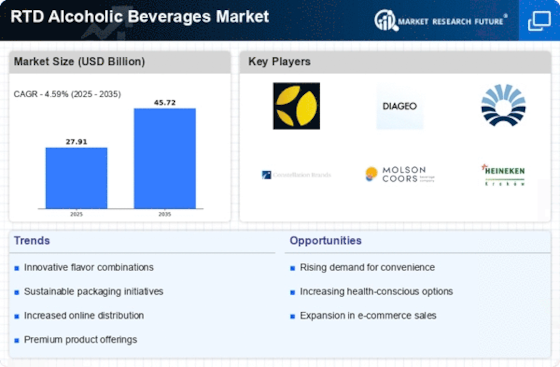
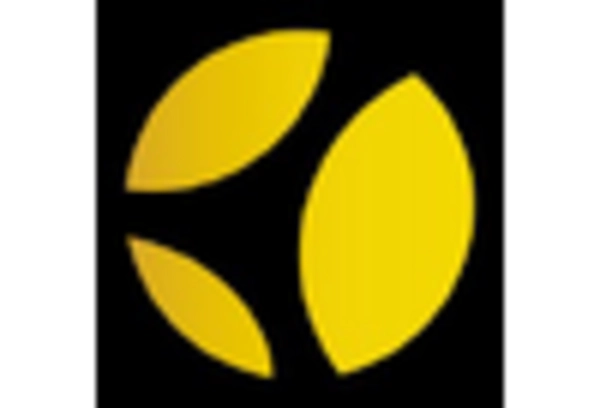
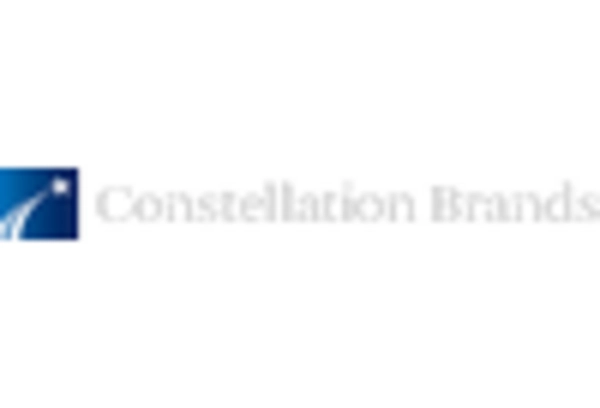
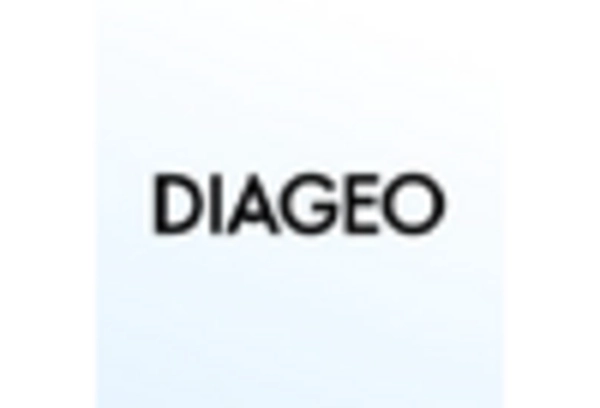
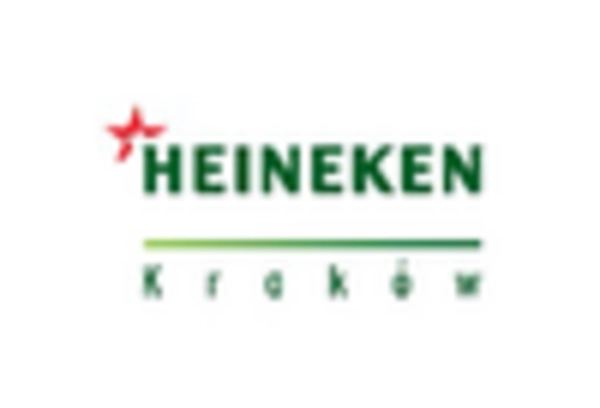
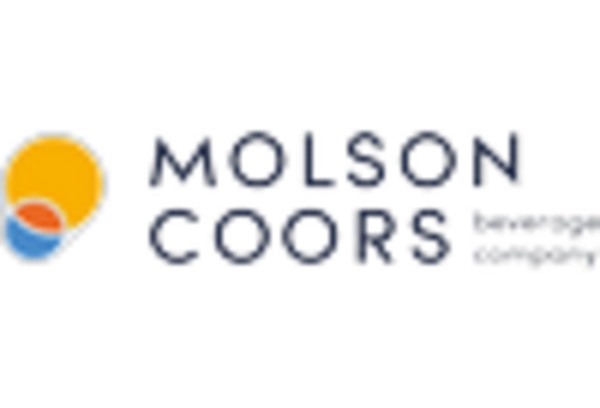










Leave a Comment